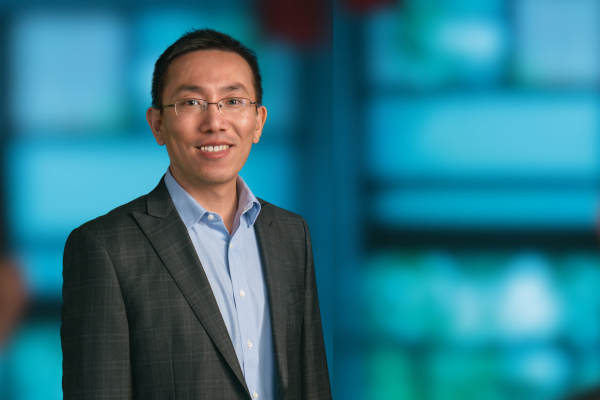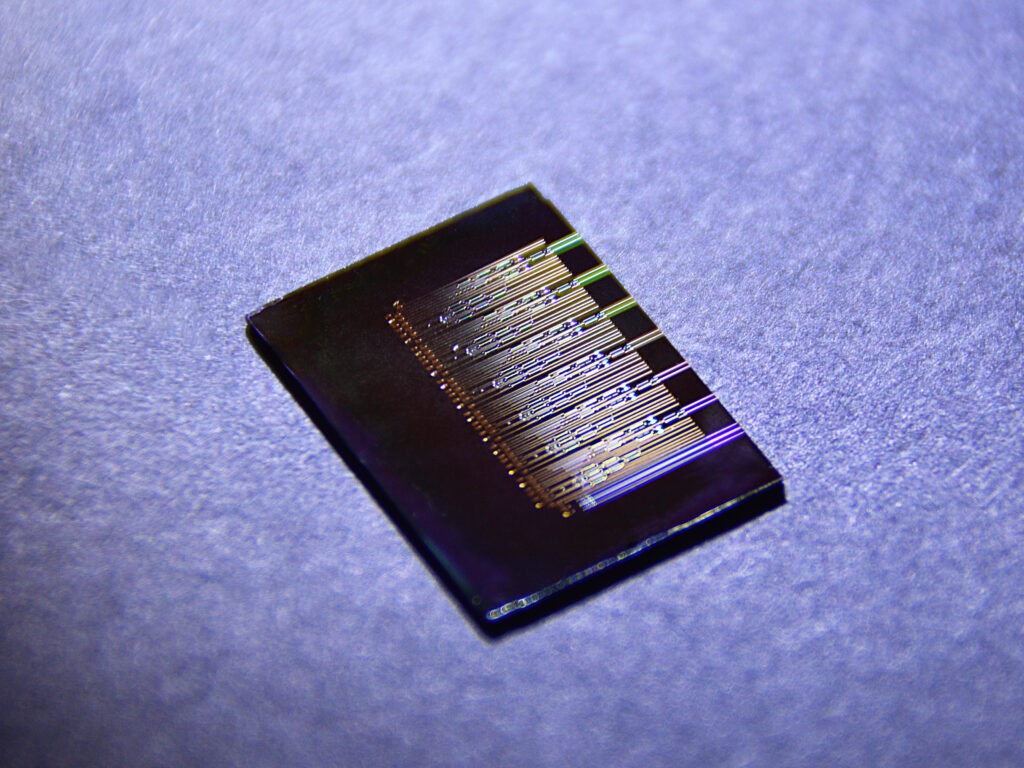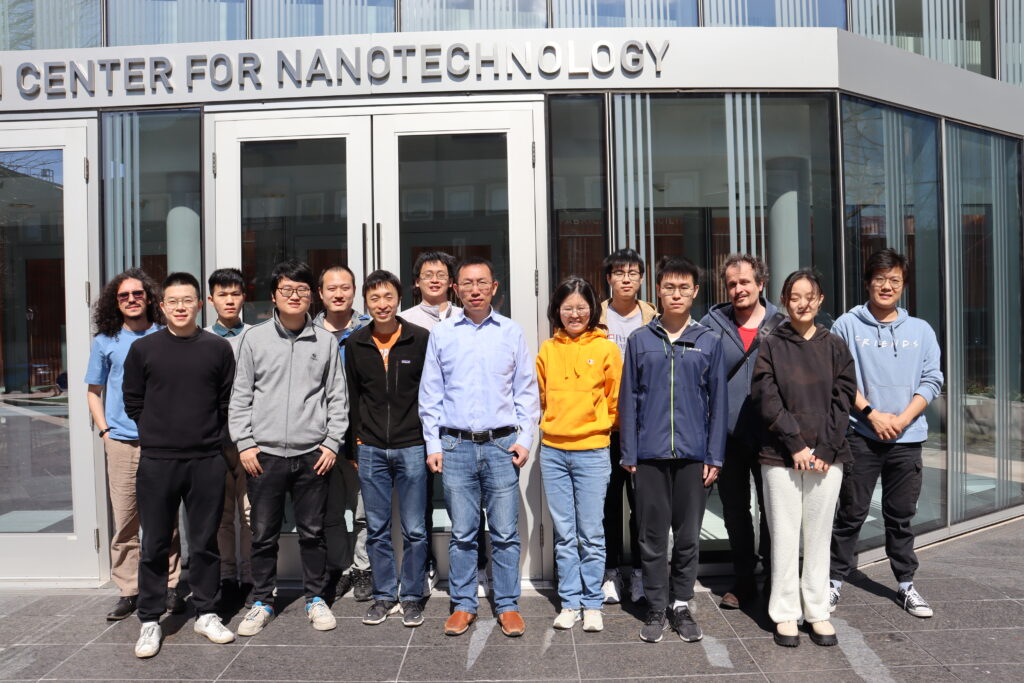Liang Feng, Professor in Materials Science and Engineering and in Electrical and Systems Engineering, is the recipient of a $1.25 million award from the Gordon and Betty Moore Foundation in support of pioneering research in his field.

Feng joins the 2024 cohort of the Foundation’s Experimental Physics Investigators Initiative, which welcomed its first cohort in 2022, and provides flexible funding to pursue imaginative research ideas, allowing investigators from universities across the country to explore new and uncharted areas and advance the scientific understanding of the natural world.
Technologies such as GPS, quantum computing, certain types of microscopy, and lasers used in communication and medicine have the field of quantum physics, specifically quantum optics, to thank for their existence. Quantum optics is the study of the fundamental interactions between light and matter on a quantum level, examining how particles of light, or photons, act as carriers of quantum information.
Feng’s research explores how photons and their quantum information can give insight into the development of robust chip-scale generation, manipulation and detection of hyperentanglement simultaneous entanglement over multiple degrees of freedom.
Hyperentanglement refers to a photon’s ability to have multiple properties which are mirrored in another paired, or entangled, photon any distance away. By studying photonic hyperentanglement, Feng and his research group aim to deepen the understanding of fundamental quantum physics and facilitate technological breakthroughs for photonic applications, such as photonic communication, photonic computing and quantum key distribution.
Feng joins 18 other researchers from across the country in the 2024 cohort. Over the next five years, Feng will build collaborative relationships that enable innovative discoveries and dive into research exploring new quantum architectures based on a hybrid material platform. His work will investigate high-dimensional symmetries to harness the full potential of integrated quantum photonics toward noise-resilient, high-capacity and large-scale distributed quantum systems.

“I am deeply grateful for the Moore Foundation’s generous five-year commitment to support this high-risk, high-reward research,” says Feng. “This award is crucial in advancing my long-term mission to explore the unprecedented control of high-dimensional quantum states and their associated exotic entanglement structures.”
In addition to supporting creative research to advance experimental physics, the Investigators Initiative also supports each awardee in their effort to make their research groups more inclusive and advance equity in their departments.
“This award also offers a great opportunity for me to recruit more research talents from diverse backgrounds to bring a large variety of perspectives to Penn Engineering,” says Feng.
Follow Feng and his group’s research as they kick off their projects studying light and quantum physics.

